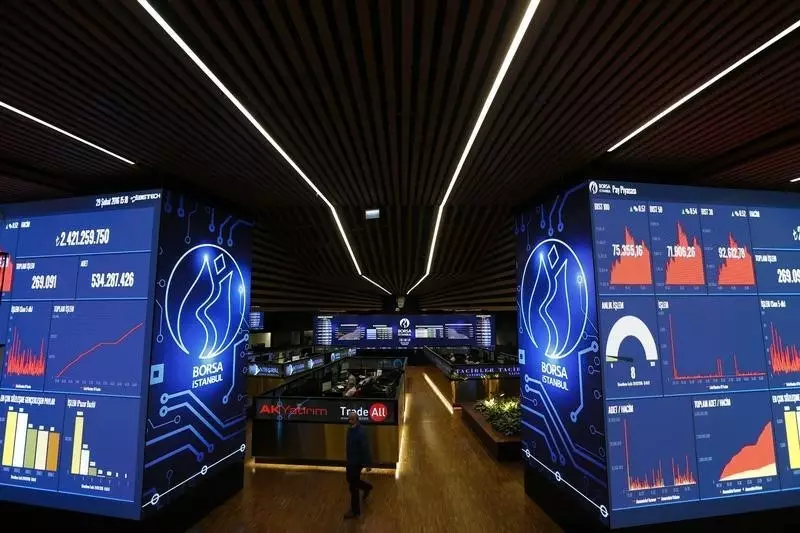Recent market developments in Turkey’s stock arena indicate an encouraging upward trend. The Istanbul Stock Exchange recorded notable gains on a Monday, bolstered predominantly by the performance of sectors such as Wholesale & Retail Trade, Banking, and Technology. The benchmark BIST 100 index, a key indicator of market health, concluded the day with an increase of 0.51%. This performance reflects a growing investor confidence amidst fluctuating economic landscapes.
Notable stocks making headlines included Batisoke Soke Cimento Sanayi TAS, which achieved a remarkable 9.96% increase, helping it close at 11.15. Its substantial rise is emblematic of sector-specific gains that are driving the market forward. Additionally, Baticim Bati Anadolu Cimento Sanayi AS and Pasifik Eurasia Lojistik Dis Ticaret AS followed suit, recording robust increases of 8.82% and 7.37% respectively. These stocks highlight the potential for high returns in specific sectors, aligning with broader investor strategies targeting growth and value.
Conversely, not all stocks were able to bask in the market’s positivity. Several companies, such as Margun Enerji Uretim Sanayi ve Ticaret AS and Sekerbank TAS, faced challenges and posted declines of 3.20% and 2.63%, respectively. These downward movements may naturally generate caution among investors, as they reflect the volatility and risk inherent in stock trading. On the whole, however, a significant majority of shares—a ratio of 297 advancing against 251 declining—demonstrated resilience, suggesting overall bullish sentiment across the market.
The trading dynamics also pointed to an interesting phenomenon: the significant rise in certain stocks reaching all-time highs reflects distinct market segments gaining momentum, despite uneven performances elsewhere. Such disparities can often provoke strategic realignment by investors seeking robust growth opportunities.
Commodity Market Fluctuations
Turning attention to the commodities market, recent trends indicate a mixed sentiment as well. Gold futures dropped by 0.73% to $2,728.51 per troy ounce, a minor setback in what has been a volatile market for bullion. This decline could be attributed to fluctuating investor sentiment regarding safe-haven assets amidst broader macroeconomic concerns.
Crude oil prices also witnessed a downturn, with West Texas Intermediate (WTI) for March delivery decreasing by 1.58%, settling at $76.17 per barrel. Meanwhile, Brent oil also slipped, reflective of global supply and demand balances shifting in the face of geopolitical uncertainties. The fluctuations observed in oil prices often serve as a barometer for economic health and can influence investment decisions across sectors.
On the currency front, the Turkish Lira faced slight pressures against the US Dollar, rising 0.38% to 35.56, while the Euro saw a more pronounced increase of 1.77% to 37.04. This trend may indicate increased foreign exchange pressures, with implications for trade balances and inflation dynamics in Turkey.
As the market continues to respond to both domestic and international factors, the interplay between stocks and commodities remains critical to understanding overall economic health. Investors are advised to remain vigilant, analyzing sector-specific trends and global economic indicators to navigate the complexities of the current market landscape effectively.

